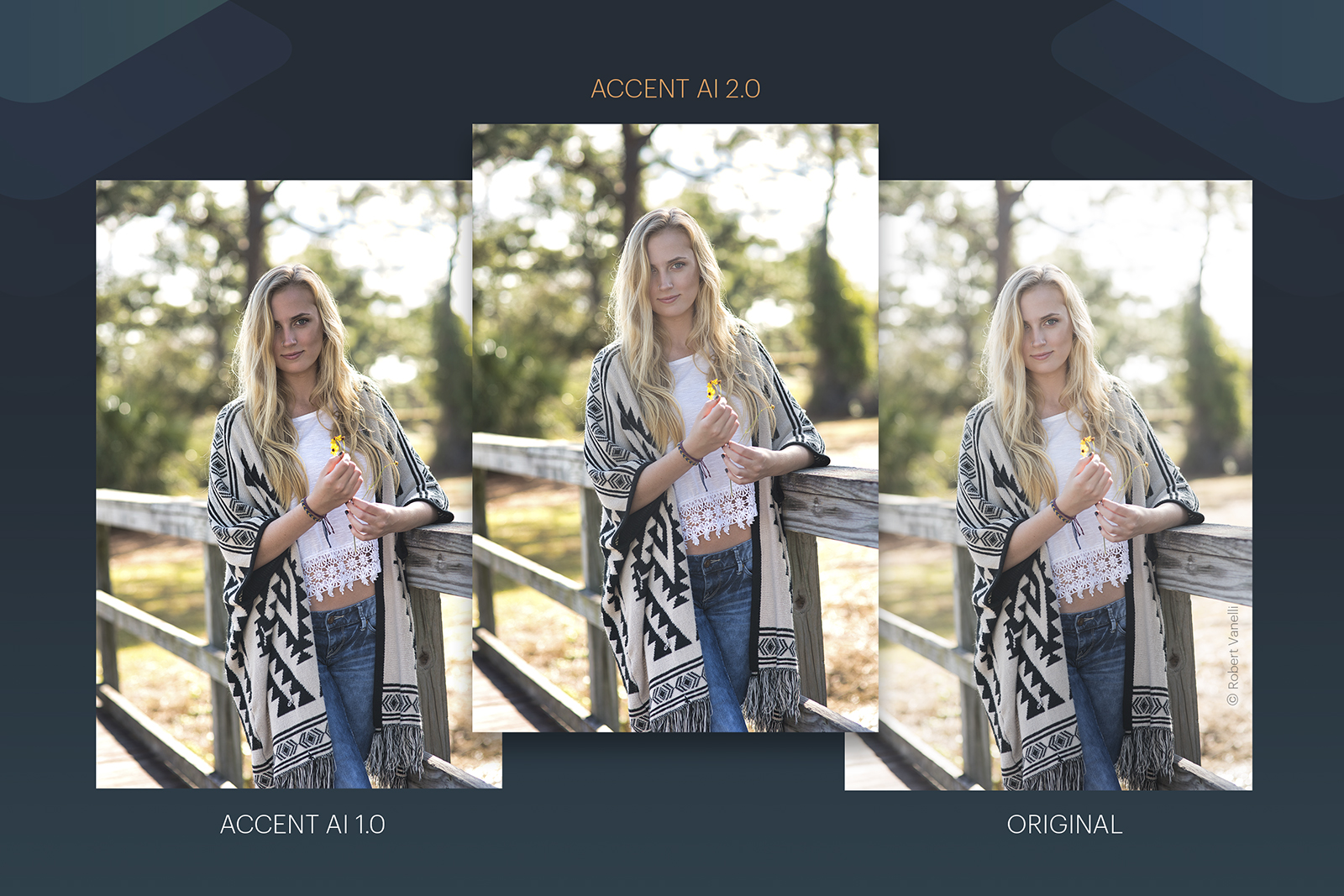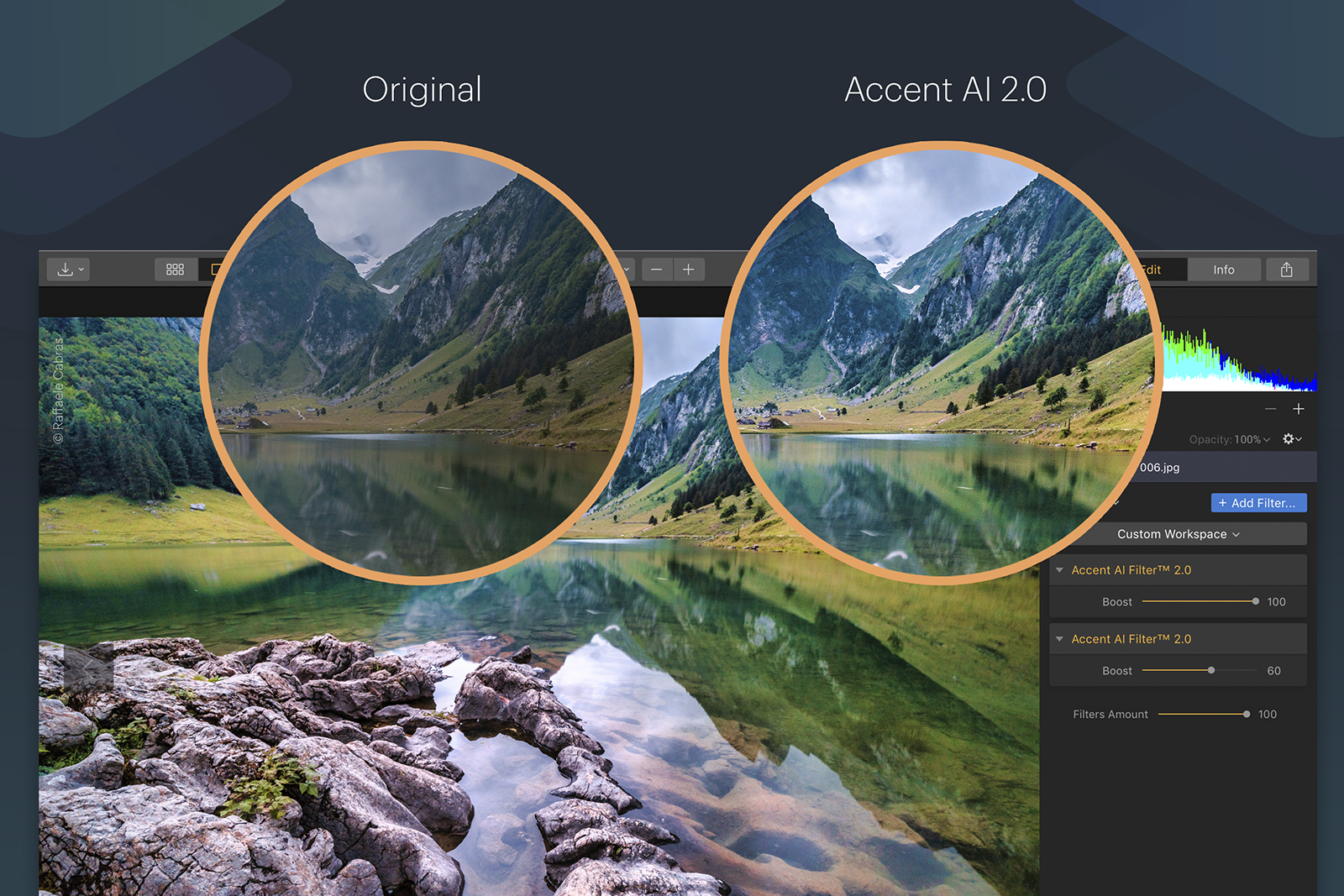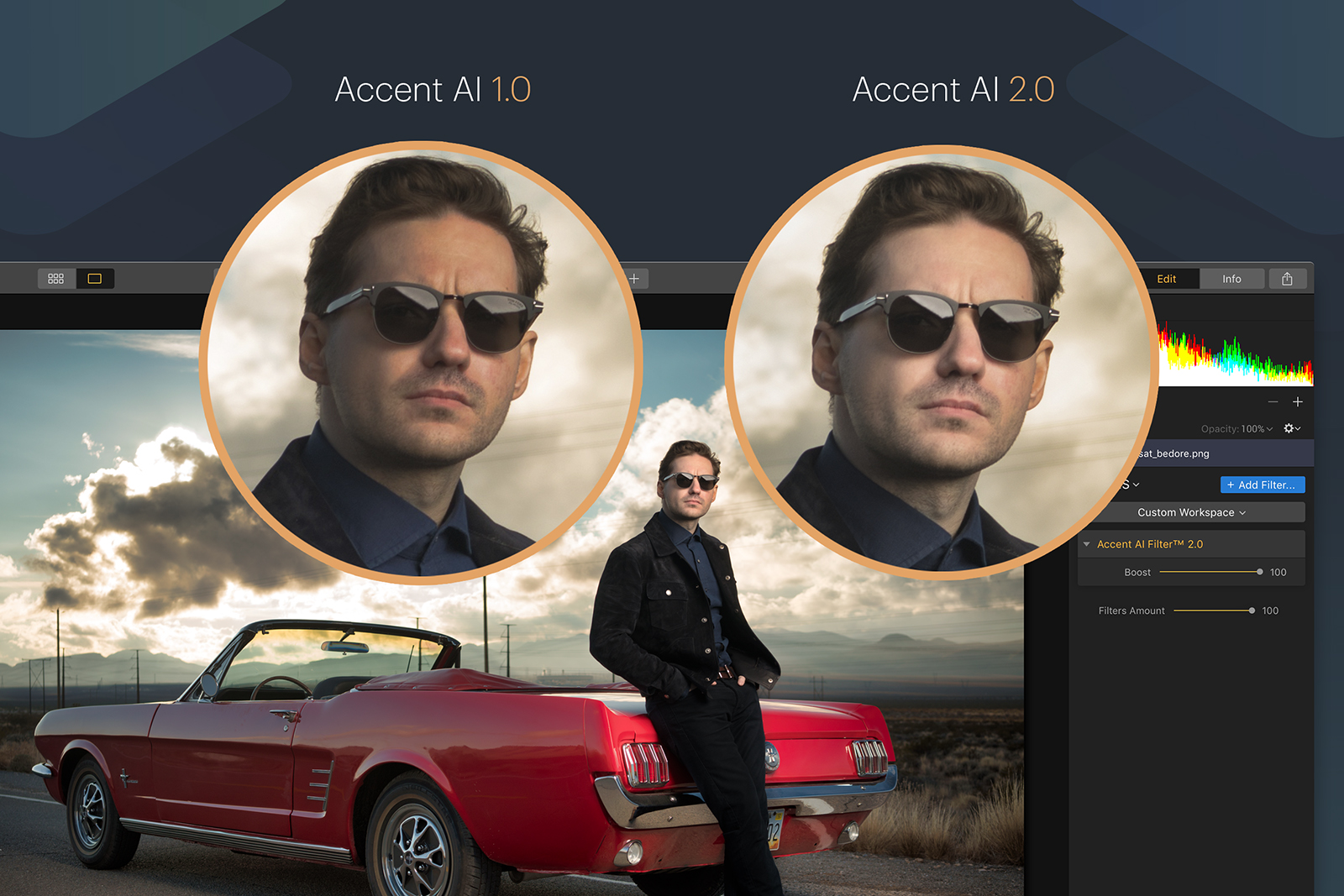Skylum Luminar’s artificially intelligent photo editing tools just got a little smarter. On Thursday, April 25, Skylum Software launched Luminar 3.1.0, an update that focuses on enhancing the Accent A.I. filter as well as bringing a handful of other smaller tweaks.
The existing Accent A.I. uses machine learning to automatically adjust a photo, using the data that is in the image to make image-specific adjustments rather than treating all images identically. With the update, the A.I. behind the feature is now able to recognize people and some objects, creating better results from the streamlined tool.
By recognizing people in the image, the tool can better preserve skin tones instead of applying adjustments indiscriminately to both people, objects, and scenery, Skylum suggests. The result is a more realistic image with selective adjustments based on what the software recognizes inside the image.
“Accent A.I. has been a revolutionary tool for many photographers using Luminar, helping them to speed up their workflow and come away with truly amazing images. With this update to Accent A.I., it will assist photographers more than ever, allowing them to truly harness content-aware technology in ways never seen before,” Alex Tsepko, CEO of Skylum, said in a press release.
Alongside the update to Accent A.I., the latest version also allows photographers to pair matching files when shooting with the RAW + JPEG option to better organize photos. Users can also use an improved sync tool to apply the settings from one image to another, automatically syncing the settings but excluding layers, crop, erase, clone, and stamp edits.
When adding new images in the Windows version, users can also copy the images to a new folder on the hard drive, such as when importing directly from an SD card. Selecting images inside a gallery improves with a control-click shortcut for selecting images that aren’t adjacent to each other.
The updates tweak the Lightroom competitor with simplified workflow tools and expanded A.I.-based tools. Skylum Software is the same company behind Photolemur and Aurora HDR.
The latest version is a free update for current Luminar 3 users. The update also launches with a temporary discount on the software for new users, starting at $60, which is a $10 discount. The offer is good through May 14.






